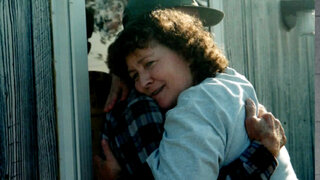Create a free profile to get unlimited access to exclusive videos, breaking news, sweepstakes, and more!
‘This Was Just Too Bizarre For Words’: Mom Found Killed With Head Wrapped In Duct Tape
Despite initially being interviewed by police, Norma Rodriguez’s killer walked free for 10 years before he was finally caught.
The cozy town of Port Hueneme, California was rocked by tragedy after a beloved single mother was murdered — and years passed before the killer was uncovered.
On the morning of June 1, 1993, the Port Hueneme Police Department received a shocking call from a man who said his ex-wife had been murdered. When officers rushed to the house, they were unprepared for the gruesome scene: 32-year-old Norma Rodriguez, a single mother of two, was lying on the ground, dead. Someone had wrapped duct tape around her head, and although some of the tape had been cut away, it was clear that whoever her killer was had put a lot of effort into the disturbing act.
“This was just too bizarre for words,” Tony Paradis, a retired detective with the PHPD, told “An Unexpected Killer,” airing Fridays at 8/7c on Oxygen.
However, there didn’t seem to be many signs of struggle at the home, and there was no blood anywhere. Norma’s purse was also untouched in her bedroom, eliminating the idea that whoever her killer was may have only intended to rob her at first.
Police first spoke with Norma’s ex-husband, Tony Rodriguez, who was at the scene with his brother Hector and had placed the 911 call. Tony said he’d arrived at the home that morning to take their two sons to school as usual and found his ex-wife dead. He instructed the two boys, aged 4 and 11, to stay in their bedrooms until the police arrived.
When Norma’s sister Oralia Garcia arrived at Norma’s home that morning to see why her sister wasn’t answering her phone, she was devastated by the news.
“Not in my worst nightmares did I ever think that this would happen to my sister,” Garcia told producers. “It was horrible. Horrible.”
Police took Tony and Hector back to the police station for questioning. Tony said when he’d knocked on the door that morning no one had answered, so he used a credit card to force his way inside. That was when he and Hector had found Norma lying on the ground with her face wrapped in duct tape. Hector had been the one who took out scissors and cut the tape away, thinking that there was a chance she was still alive.
Despite police’s initial suspicion, both Tony and Hector took polygraph tests and passed.
Investigators next spoke with Norma and Tony’s oldest son, 11-year-old Andrew, who told them the night before, he’d gone to a baseball game with his father and uncle. When he was dropped off at home later that night, he found the house dark and the front door locked, so he went around back to his bedroom window, which he found open. He crawled through the window into his room, where his 4-year-old brother remarked, “Mommy has a band-aid on her face.” He didn’t think much of it and went to sleep.
“It just ripped at your heart knowing that a 4-year-old child had been just mere feet away from his mother being killed,” Paradis said.
Police then spoke to Norma’s 4-year-old son, Austin, who eventually mentioned a man named Corey, implying this man was at the house at the time of the murder. Police finally had a viable suspect.
Norma’s co-workers referenced a man named Corey Davis, a co-worker at the retail store where Norma worked, and investigators quickly brought him in for questioning. He seemed extremely nervous, detectives recalled, and was reluctant to make eye contact. When asked about his relationship with Norma, Corey told investigators that, beyond the occasional interaction at work, they didn’t really know each other. He also claimed to have been at home with his parents on the night of Norma’s murder.
He ended up passing a polygraph test and was cleared as a suspect.
Investigators talked to another of Norma’s co-workers, Beatrice, who said Norma had a barbecue at her house for a few of her co-workers the day before she was killed. Beatrice recalled that during the party Norma said her keys were gone and everyone stopped to help look for them, but they had seemingly vanished. This was especially interesting to investigators, since Norma was found dead the next day with her keys lying beside her.
“We figured someone had taken her keys and that’s how they were able to enter the house,” Fernando Estrella, a retired chief of police for the PHPD, told producers.
Police took a closer look at everyone who’d attended Norma’s barbecue and learned about a former co-worker of hers named Warren Mackey. He and Norma had become good friends but, although Mackey was interested in making their relationship romantic, Norma wasn’t, according to her friends. They said he wasn’t happy about being rejected, but Norma continued to try to maintain their friendship and include him in group activities like the barbecue.
Mackey denied having romantic feelings for Norma, but police weren’t buying it. They grew even more suspicious when Mackey said he occasionally helped Norma with things around the house and mentioned having once fixed her sons’ basketball hoop using duct tape.
Mackey said he was one of the last to leave the barbecue, and that he and Norma had spent time together watching TV. He denied having anything to do with Norma’s death, though, claiming he’d gone to a club that night with his roommate and his roommate’s girlfriend. They corroborated Mackey's alibi.
A decade passed with no resolution, until a single phone call changed everything. A person working in the police crime lab who had access to evidence in Norma’s case called detectives and informed them they’d found a match to the DNA recovered at the murder scene: Warren Mackey.
Investigators were shocked. Mackey had passed a polygraph test, his alibi had checked out, and he’d seemed generally willing to work with police.
“Of everyone we dealt with, he was probably the coolest customer of the bunch. It just blows you away,” Paradis said. He later added, though, “If you’re dealing with someone who’s a true sociopath, they can get past a polygraph test.”
Detectives began to understand what had happened: Mackey, unhappy about being rejected, used the keys he’d stolen from Norma’s house during the barbecue to sneak into her home early the next morning. He strangled her and then wrapped her head in duct tape so he wouldn’t have to look at her.
Mackey was arrested in August 2003 for Norma’s murder. Two years after his arrest, Mackey pleaded guilty, and he was sentenced to 15 years to life in prison.
Following the verdict, Norma’s loved ones as well as the investigators who worked on the case were relieved that justice had finally been served, but noted nothing would ever change the fact that a loving mother and friend had been taken away from the world.
“It still hurts like it happened yesterday,” her sister Garcia told producers. “I miss her in my life. That wound does not heal. We just put it on the backburner. We have to live for Norma, and we have to go forward.”
For more on this case and others like it, watch “An Unexpected Killer,” airing Fridays at 8/7c on Oxygen or stream episodes any time at Oxygen.com.






















